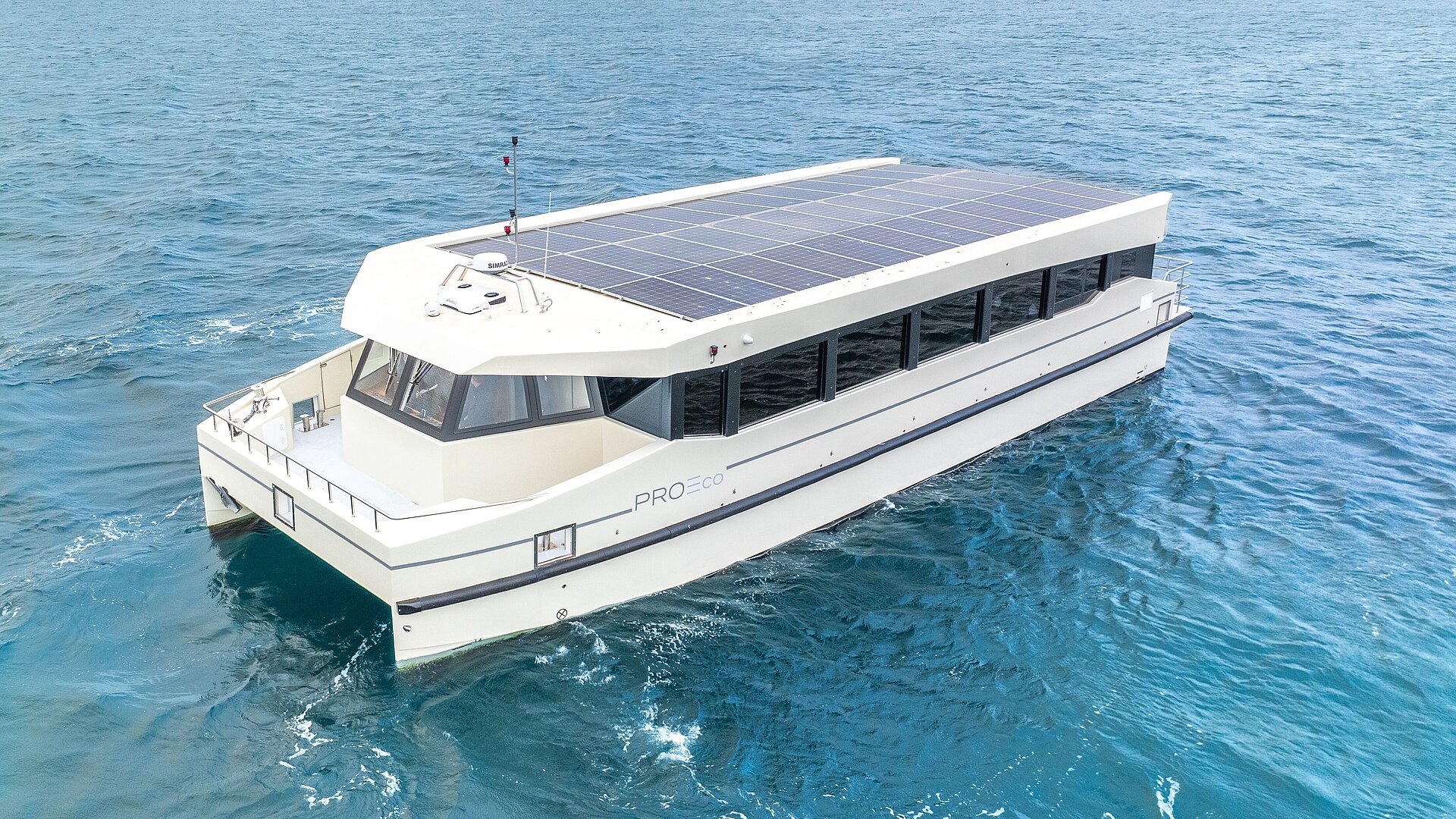
Eco-catamaran commissioned in Adriatic Sea

The PROeco ferry will be deployed on short, defined routes in the Adriatic Sea (Source: Bcomp)
The PROeco ferry is deployed on short, defined routes for more than ten hours a day. Electric motors on board the 100-passenger vessel save an estimated 770kg of diesel emissions each day. The bio-based material used in place of standard glass, polyester and vinylester has also reduced emissions related to the manufacture of those fossil fuel-derived materials and also opens up a range of new end-of-life options.
Bcomp’s high-performance bio-composite material was used in the construction of almost all non-structural and semi-structural components of the vessel, including the bulkheads, seats, ceiling and side linings — and some parts of the floor. These parts were manufactured by combining ampliTexTM laminate with infusion bio-based epoxy resin through vacuum infusion and a resin transfer moulding process.
“By combining renewable energy with natural fibre composites, this vessel represents the advent of a completely new stage in eco-friendly mass mobility on waterways,” declared Paolo Dassi, Marine & Industry manager of Bcomp. “Not only does it reduce energy demands and emissions related to manufacturing, but it also allows for a substantial reduction in impacts throughout the vessel’s operational life.”
During development of the bio-composite material, test panels were subjected to mechanical property tests in cooperation with the University of Zagreb’s Faculty of Mechanical Engineering and Ship Building. The ampliTex™ material is also being used by Marservis for the Aquapod+, an autonomous device used to collect floating waste from ports, and the ECOcube, an autonomous floating reception station for solid and liquid waste from vessels.
